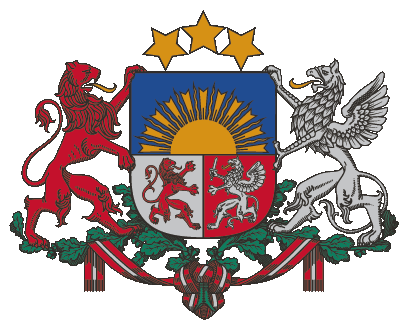Having completed the audit of the 190 million euros allocated to the Ministry of Economics, which one intends to transfer to the joint-stock company “Development Financial Institution Altum” (hereinafter referred to as ALTUM) from the state budget, the State Audit Office concludes in the interim audit report that not all the sum of the investment into ALTUM was justified. This amount was allocated in five programs to support economic operators in difficulty due to the outbreak of COVID-19. The State Audit Office must admit that there is no clarity about the possible action with the balance of those funds after the end of the loan and guarantee programs when the businesses will have repaid the loans and the term of the guarantees will have expired.
By the end of September 2020, ALTUM has provided a total of 117.5 million euros in support in the form of loans and guarantees to 493 economic operators under the COVID-19 mitigation support programs. During this period, commissions and interest payments of more than half a million euros have also been received from enterprises.
In general, support has been provided to economic operators affected by the COVID-19 crisis. However, the State Audit Office has identified several cases where ALTUM has applied derogations from laws and regulations by extending the criteria justifying the impact of COVID-19 crisis listed in the Cabinet Regulation, as well as derogations from internal criteria of ALTUM for the application of both the loan collateral and the tax debt conditions. At the same time, one welcomes that they amended the rules for implementing support programs already during the audit by extending the criteria justifying the impact of COVID-19 in line with actual practice.
The 190 million euros allocated to ALTUM from the state budget were intended to implement five COVID-19 crisis management programs (working capital loans, loan holiday guarantees, portfolio guarantees, capital fund, and guarantees for large companies). Funds have been allocated not only to cover expected losses and significant ALTUM expenses for the administration of those programs but also, according to the Ministry of Economics, funds for issuing loans and making investments. To issue loans, ALTUM also borrowed 80 million euros from the European Investment Bank but intended to borrow 150 million euros from the State Treasury simultaneously.
The State Audit Office points out that regarding 100 million euros invested in ALTUM’s reserve capital for the three support programs out of the 190 million euros allocated from the state budget, the Ministry of Economics has not determined what should be done with the balance after the loans have been repaid and there will be some balance. In the opinion of the State Audit Office, such conditions for the further use of the remaining funds are necessary to ensure that this money shall also be allocated to support that the state has set as a priority another time or shall be repaid to the state budget.
The State Audit Office emphasises that if one does not provide transparent, up-to-date, and complete information on the expenditure and revenues of state support programs mitigating the consequences of COVID-19 crisis and the support supplied and its amount to specific economic operators, the public will not be able to gain confidence in the responsible and effective management of the state budget funds. Therefore, in cooperation with ALTUM, the Ministry of Economics has undertaken to publish information regularly and promptly on the use of funds, revenues, and their actual balance of support programs to mitigate COVID-19 crisis and to implement other recommendations of the State Audit Office.
